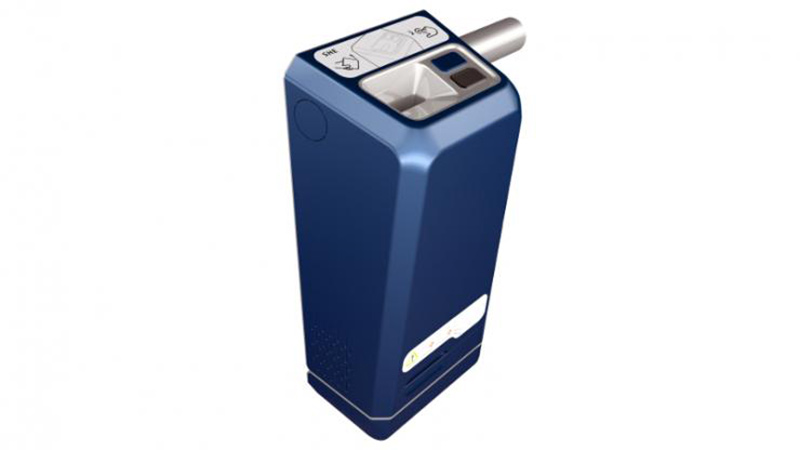November 5, 2018 | By Mara Shurgot
Demonstration system manufactured through global partnership is the size of carry-on luggage

The lack of safe and discreet menstrual hygiene options contributes to lost workplace productivity and missed schooling for millions of women and girls around the world. A technical solution called S.H.E. strives to address this pressing need.
Safe Hygiene for Everyone (S.H.E.) systems are fully automated sanitary pad disposal units designed to thermally treat menstrual hygiene waste such as sanitary pads and napkins. Engineered by the Duke University Center for WaSH-AID (Water, Sanitation, Hygiene and Infectious Disease) and U.S.-based partner Biomass Controls, LLC, the technology is now set to debut in five prototype systems manufactured through an agreement with G K Controls, Pvt. Ltd., an engineering firm in Pune, India.
“A safe, discreet and affordable hygiene disposal option is critical to addressing the sanitation crisis globally,” says Brian Stoner, director of the Center for WaSH-AID. “In many disadvantaged communities, 50 percent of the population suffers due to insufficient access to menstrual hygiene disposal options.”
Each S.H.E. unit is about the size of a carry-on suitcase and batch processes up to 25 pads at a time and more than 100 pads a day. It can automatically detect when the optimal number of pads has been reached for efficient disposal and can be monitored remotely with an app.
S.H.E. emits virtually no smoke and produces minimal ash, resulting in a 98 percent reduction in particulate matter (PM2.5) over leading competitors.
The five systems will be demonstration units for future commercialization, and their manufacture is a significant step in creating compact, efficient, environmentally responsible solutions.
“Our partnership with G K Controls has been an invaluable engineering resource over the past several years as we seek to bring gender-transformative technologies to market for global areas of need,” says Jeff Piascik, president of Biomass Controls.
“We are quite excited to be associated with Duke University Center for WaSH-AID and Biomass Controls,” says Shirish Tapadia, director of G K Controls. “This sanitation product initiative is completely in line with our willingness to better the environment in developing countries.”
The Center for WaSH-AID is a translational research team that works closely with more than 20 academic, non-profit, and private industry partners to facilitate the development and sustainable deployment of novel technology-based health solutions for resource-constrained communities around the world.
